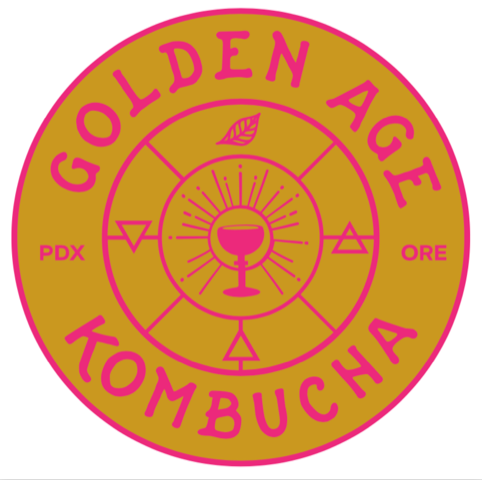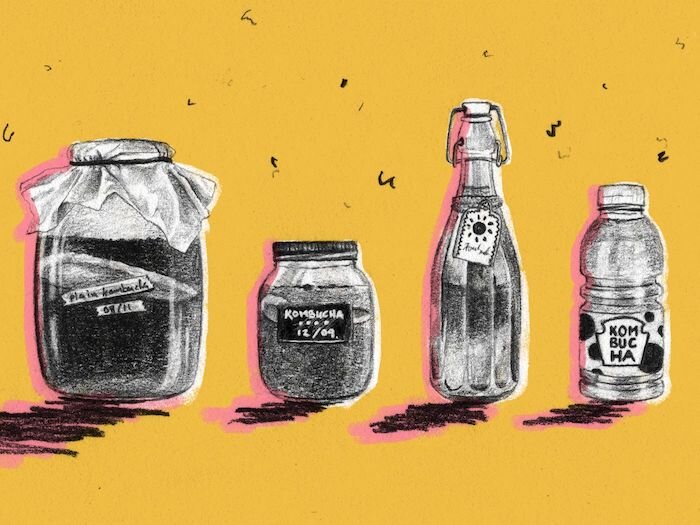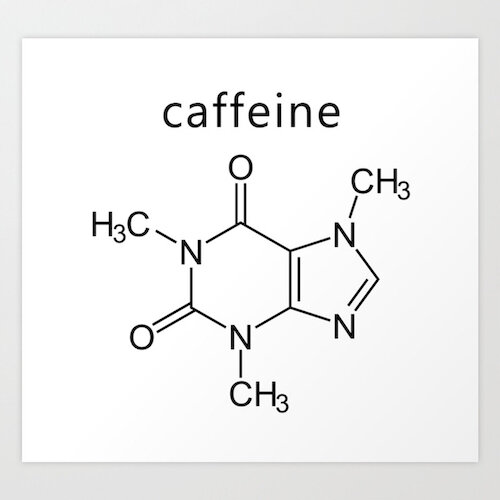This is Your Brain on Bouch! To Be Caffeinated or Not Caffeinated?
I have been on a caffeine hiatus since September 2020. Coffee and I have had an on-again off-again relationship, where I was drinking it most mornings but some morning I would forget. The mornings I forgot didn’t seem to effect me too much but if I went more than a day, I found myself grumpy, tired, and with a pounding headache.
During 2020 that I was drinking A LOT of coffee. Coffee was my go-to drug when I needed to get shit done. But it also created a heavy level of anxiety within me. When it was recommended by my doctor to kick my caffeine habit, my anxiety drastically decreased, but that didn’t mean my kombucha was going anywhere!
An 8 ounce cup of kombucha has the equivalent caffeine amount to 1/3 of a cup of green tea. It’s pretty minimal. It doesn’t cause the jitters (and I get jitters when I drink decaf coffee now).
A normal dose of caffiene is about 100mg. More than half of all Americans drink more than 300mg of caffiene a day. To get an idea of where kombucha measures up alongside coffee varies. A cup of green tea kombucha can have 2-3 mg, while a cup of black tea kombucha can have 30-80 mg.
So what makes kombucha different? Kombucha benefits the body by helping to reduce the effects of stress and anxiety while acting as an adaptogen to normalize and balance the body and brain. The main difference between coffee and tea is that tea has a calming effect on the drinker as it contains L-theanine which reduces anxiety (unlike coffee which raises anxiety levels).
Tea stimulates the alpha brainwaves, calming the mind and producing serotonin and dopamine, while improving memory and learning. L-theanine may also help boost other cognitive skills while increasing attention span and reaction time in people who are prone to anxiety. It also may improve accuracy in humans, decreasing the number of errors they make.
If you’re concerned about having any caffeine in your kombucha, Golden Age Kombucha’s Golden Hour and Wake Up and Smell the Sunshine are two decaffeinated blends of kombucha in which we use decaffeinated rooibos tea to make. In order to make kombucha however, 1/3 of caffeinated tea (camellia sinensis) still needs to be added to the kombucha brewing process. After all the Scoby needs caffeinated tea, organic sugar and starter fluid in order to ferment.
There are so many variables to consider in the land of kombucha and caffeine increments vary depending on the type/quality of tea, steep time and fermentation cycle. While we recognize that some people may have higher caffeine sensitivity level than others, we encourage our followers and customers to experiment with what works best for them. Just like in the land of kombucha, in the land of humans, not all bodies are created equal.



